8 Days Kenya Lodge Safari, Tsavo West,
Amboseli, Lake Nakuru, Maasai Mara Lodge Camping Safari
The bellow
Kenya wildlife luxury camping itinerary takes you to
Tsavo West,
Amboseli, Lake Nakuru and Masai Mara Game Reserve
where the great Wildebeest
Migration
is a spectacle to behold for any visiting Kenya mainly in July and August of
each year,
Amboseli national park
famous for its big game and great scenic beauty whose entire landscape is
dominated by Mt
Kilimanjaro.
Tsavo West
National Park.
Visit the Chyulu Hills and the Mzima Springs, which are favorite haunts of
both the hippo and crocodile that can be seen from an underwater observation
chamber. Lake
Nakuru National Park
known as Pink Lake often referred so due to it’s Great masses of Flamingos.
Lake Bogoria
visit an area of bubbling hot springs and steaming geysers, and admire the
pink swathes of flamingos on the soda lake.
Samburu National Reserve
has changing landscapes to the rugged-semi region, though harsh but having
unique species like the unusual reticulated giraffe, grevy's Zebra, Beisa,
oryx, gerenuk. The private ranch at Sweetwater's is the only sanctuary for
rehabilitation in Kenya of these widely abused chimpanzees with two groups
living in an environment as close to their natural habitat as possible. The
site is also a dedicated black rhino breeding area.
Day 1 Nairobi - Samburu
National Park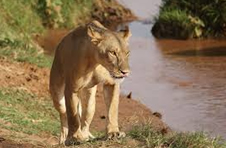
This reserve is located around the life-giving Uaso Nyiro River, is home to
the rare, beautiful and resident wildlife species like The Reticulated
Giraffe, Grevy's Zebra, Beisa Oryx and the blue-necked Somali Ostrich that
are rare elsewhere in the country
Depart Nairobi in the morning for Samburu National reserve crossing the
Equator and driving through changing terrain to the rugged semi-desert
region in the northern Kenya. Though harsh, it is blessed with species
rarely found elsewhere. arrive in time for lunch at lodge. Afternoon game
drive to search for the stars of Samburu.
Dinner and overnight at Samburu
lodge/Samburu Serena lodge.
Samburu National Reserve lies 325 kilometres north of Nairobi in the hot and
arid fringes of the arid northern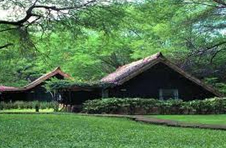 region of Kenya. The Reserve is within the
lands of the colourful Samburu people, close relatives of the Maasai, and
boasts a number of wildlife species rarely found elsewhere. These include
the Grevy zebra, the reticulated giraffe and the Beisa oryx all species
found only north of the equator. The long-necked gerenuk is a graceful
antelope, which spends much of its time in a bi-pedal stance seeking
succulence among the withered scrub, which dots this harsh terrain. Other
animals commonly seen are elephants, lions, cheetahs, gerenuks, buffalos,
grants gazelles, dik diks and waterbucks. There are over 350 varieties of
birds. These include the famous Somali Ostriches (distinguished by their
unique purple/blue legs during mating season), kingfishers, humming birds,
eagles, guinea fowls and vultures. region of Kenya. The Reserve is within the
lands of the colourful Samburu people, close relatives of the Maasai, and
boasts a number of wildlife species rarely found elsewhere. These include
the Grevy zebra, the reticulated giraffe and the Beisa oryx all species
found only north of the equator. The long-necked gerenuk is a graceful
antelope, which spends much of its time in a bi-pedal stance seeking
succulence among the withered scrub, which dots this harsh terrain. Other
animals commonly seen are elephants, lions, cheetahs, gerenuks, buffalos,
grants gazelles, dik diks and waterbucks. There are over 350 varieties of
birds. These include the famous Somali Ostriches (distinguished by their
unique purple/blue legs during mating season), kingfishers, humming birds,
eagles, guinea fowls and vultures.
Scenically and faunally dramatic, for most of the year, Samburu National
Reserve is under the unsympathetic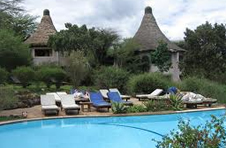 equatorial sun. But relief comes from the
wide swathe of the Ewaso Nyiro River which flows for some hundreds of
kilometres to the west on the foothills of the Aberdare ranges and which
vanishes beyond Samburu in the recesses of the Lorian swamp. The river is at
its best in the Reserve, broad and sluggish with a large population of
crocodile seen on sandbanks at almost every bend. equatorial sun. But relief comes from the
wide swathe of the Ewaso Nyiro River which flows for some hundreds of
kilometres to the west on the foothills of the Aberdare ranges and which
vanishes beyond Samburu in the recesses of the Lorian swamp. The river is at
its best in the Reserve, broad and sluggish with a large population of
crocodile seen on sandbanks at almost every bend.
In the lower reaches, where permanent pools have formed as a tributary joins
the river, are hippos. The river is fringed with giant acacias, figs and
doum palms all of which provide shade and sustenance to the wildlife, which
comes to water here. Elephant roam the gaunt hills, which punctuate the
scrubland and where occasional clusters of the vividly coloured desert rose
challenge the arid surroundings. These elephant seek solace and contentment
in the shallow waters of the river and from time to time a visitor finds
herds bathing and drinking in a spectacle of unconscious pleasure.
Day 2 Nairobi -
Samburu National Park
Full day in Samburu with game drives .Search for the rare liver red
reticulated giraffe, Grevy's Zebra, Beisa Oryx, Blue flanked Somali Ostrich,
Vulturine Guinea Fowl, Longneck Gerenuk. See braving lions on the grass,
Cheetah, Leopards among plenty of other plains game. (optional visits to
Samburu villages).
All
meals and overnight at Samburu lodge/Samburu Serena lodge.
Day 3 Treetops
Treetops Lodge for floodlit game viewing. Contains a variety of wild game
among them Elephants, Rhino, Leopard, Bushbuck, Elusive Bongo and Giant
Forest Hog.
Breakfast at a lodge and drive to the shoulders of Mt. Kenya arriving at the
Outspan Golf & Country Club for lunch. After lunch transfer by lodge vehicle
to the Treetops Lodge where from the lodge balcony you view game that often
visit the floodlit waterhole and saltlick--e.g. elephants, rhino, buffalo
and giant forest hog.
Dinner
and overnight at Treetops Lodge.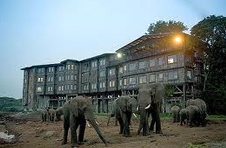
The Aberdare National Park covers the higher areas of the Aberdare Mountain
Range of central Kenya of 766sq km and the Aberdare Salient to their east.
Aberdare National Park is located in Nyeri / Nyandarua District and was
created in 1950. The Park covers an area of 766Km2 and occupy the volcanic
range that form the eastern wall of the rift valley. The Aberdares range is
dominated by two peaks separated by a saddle of moorlands. The Northern Ol
Donyo Lesatima (3,999m) and the southern peak Kinangop (3,906m). Other
significant elevations in the park are Chebuswa( 3364m), Table
Mountain(3791), Maratini Hill (3698m) and the Elephant (3590m). The terrain
of the park is diverse with deep ravines that cut through the forested
eastern and western slopes with numerous clear streams and waterfalls.
Wildlife and Bird watching at the Aberdares National Park, Kenya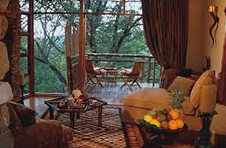
Animals easily observed include the lion, leopard, baboon, black and white
Colobus monkey, and Sykes monkey. Rarer sightings include those of the
golden cat and the bongo – an elusive forest antelope that lives in the
bamboo forest. Animals like the eland and spotted and melanistic serval cats
can be found higher up in the moorlands. The Aberdare National Park also
contains a large population of the black rhino. Visitors can also indulge in
walking, picnics, trout fishing in the rivers and camping in the moorlands
and even bird viewing due to the presence of over 250 species of birds in
the park, including the endangered Aberdare Cist cola, Jackson’s Francolin,
sparry hawk, goshawks, eagles, sunbirds and plovers.
The lodges are one of the main attractions of the Aberdares. Both Treetops
and The Ark are built above the ground beside floodlit waterholes with salt
licks. Visitors must book in advance and cannot make their own way to the
lodges in private vehicles. Instead check-in is at the Aberdare Country club
for The Ark and the Outspan Hotel for Treetops, from where guests are bussed
to their respective lodges.
Day 4 Lake Nakuru
National Park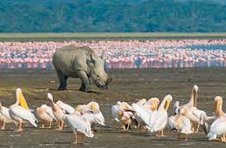
Lake Nakuru is one of the gem in the necklace of the Rift Valley Lakes often
referred as the Pink Lake for it's great masses of pink flamingos.
Depart Treetops lodge for breakfast at Outspan Golf & Country Club and
depart for Lake Nakuru via Thompson falls arriving in time for lunch,
afternoon game drive at the Pink lake referred so for it's thousands of pink
flamingos and other bird-life-it's a Bird watchers paradise. It has a
surprisingly number of animals, all the "big five" except the elephant can
be seen here, Dinner and overnight at Lake Nakuru Lodge/Sarova lion Hill.
Lake Nakuru was first gazette as a bird sanctuary in 1960 and upgraded to
National Park status in 1968. A northern extension was added to the park in
1974 and the lake was designated as a Ramsar site. Lake Nakuru is world
famous for its stunning flocks of lesser flamingo, which literally turn its
shores pink. Its birdlife is world renowned: a beacon for leading
ornithologists, scientists and wildlife film-makers. The park spans an
attractive range of wooded and bush grassland around the lake offering wide
ecological diversity, from lake water, woodland to the rocky escarpments and
ridges.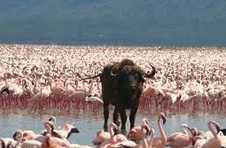
Lake Nakuru National Park rivals Amboseli as Kenya’s second-most-visited
park. This is one of the best places in Kenya to see leopards, white rhinos
and black rhinos and the endangered Rothschild Giraffe. Lake Nakuru National
park’s most famous attraction is the flamingos that ring the lake in
thousands.
Notable game within the lake includes hippo and clawless otters. On the
shores roam waterbuck, Bohor's Reedbuck and zebra. The woodlands and forest
are now home to both black and white rhino. In 1987, only two black rhinos
remained following the ravages of poaching. By creating a rhino sanctuary
within the park and reintroducing a breeding herd from Laikipia, the K.W.S.
has now successfully re-established rhino in the park. Lake Nakuru National
Park is also a sanctuary to the endangered Rothschild Giraffe.
Game viewing is relatively easy: buffalo, leopard, lion, Rothschild's
giraffe, Black and White Colobus monkey are plentiful in the forest. The
bushlands offer eland, steinbok, impala, Chandler's reedbuck and dik dik,
whilst rock hyrax and klipspringer occupy the cliffs and escarpment.
Day 5 Lake
Naivasha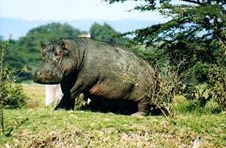
Lake Naivasha is a birdwatchers dream come true. Some areas of Lake shore
have recorded over 400 species. The acacia forests teem with Hoopoe,
Woodpeckers, Rollers, Shrikes, Hawks, cuckoos and much more.
Breakfast and depart for Lake Naivasha in the Great Rift Valley. Lake
Naivasha is one of the gems in a necklace of Rift Valley lakes, has a
variety of bird life and hippo colonies. Lunch,
Dinner and overnight at Lake
Naivasha country club.
Lake Naivasha is one of Kenya’s most stunning Rift Valley freshwater lakes.
It is surrounded by feathery papyrus, marshy lagoons and grassy shores and
without any known outlet - a prerequisite for a freshwater lake. The highest
of the Rift Valley lakes, Lake Naivasha's incredibly blue waters reflect off
sun-drenched mountains and is also home to an incredible variety of bird
species.
Much of Lake Naivasha is surrounded by forests of the yellow-barked Acacia
tree, full of birds and black and white colobus monkeys and offers guests an
opportunity to adventure with boat trips and reach the hippos, pelicans and
fish eagles ground that is a close quarters to get to Crescent Island – a
protected reserve where you can walk amongst zebra, antelope and giraffe
that come to the water’s edge to drink. There are no predators, so this is
one of the few places in Kenya offering the opportunity to walk amongst the
animals.
Other Attractions near Lake Naivasha include
Crater Lake Game Sanctuary - Surrounding a beautiful volcanic Crater Lake,
on the western side of Lake Naivasha and north of the village of Kongoni, is
this small sanctuary, with many trails including one for hikers along the
steep but diminutive crater rim.
Crescent Island Wildlife Sanctuary - The protruding rim of a collapsed
volcanic crater forms this island on the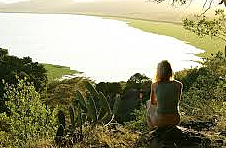 eastern side of Lake Naivasha. It's
a private sanctuary, where you can walk beneath yellow-barked acacias
(yellow fever trees) in search of giraffes. eastern side of Lake Naivasha. It's
a private sanctuary, where you can walk beneath yellow-barked acacias
(yellow fever trees) in search of giraffes.
Elsamere Conservation Centre - A couple of Kilometers past Fisherman's camp
on Moi South Lake Rd you'll find Elsamere conservation centre, the former
home of the late Joy Adamson of Born free fame.
Hell's Gate National Park lies beside the lake. Named for its pair of
massive red tinged cliffs the park frames a geothermically active interior
of steam vents and bubbling springs and is home to a profusion of plains
game and birdlife. Famous for it's natural hot geysers, eagle, buzzard and
vulture breeding grounds, visitors have a choice of driving or walking
within the park. Rock climbing and horseback safaris can also be arranged.
Over 100 species of birds have been recorded in the park and thousands of
Swifts are seen daily in large flocks.
Wildlife and Bird Watching in Lake Naivasha National Park
Game viewing includes: giraffe, buffalo, Colobus monkeys, large lazy hippos,
hartebeest, lion, leopard and cheetah. Birdlife at the lake includes
Long-tailed and Great Cormorants, Fish Eagles and Pied Kingfishers, Black
Herons, Babblers and Lovebirds.
Day 6 Maasai Mara
The famous Maasai Mara, the jewel of Kenya's wildlife and the greatest spot
for wildebeest migration.
Morning game viewing at the Pink ,it is rhino sanctuary and a bird watchers
paradise, look for warthogs and water bucks as you leave the Park. Breakfast
at the lodge and depart for Maasai Mara crossing the Loita plains, see red
clad maasai warriors tend their multi-colored herds amongst plains game.
Arrive Mara in time for lunch. Game viewing enroute to Mara Sarova camp for
lunch. Afternoon game drive.
Dinner and overnight at Mara
Sarova luxury
Tented Camp/Mara Sopa Lodge.
Masai Mara National Reserve (also known as Masai Mara or The Mara) is
situated within the Great Rift Valley (a fault line some 3,500 miles
(5,600km) long that extends from the Mediterranean Sea through Kenya,
Tanzania, Malawi, Mozambique and to South Africa)in the southern part of
Kenya. Measuring approximately 1510sq. kilometres (approx. 938sq. miles) in
size. The Masai Mara is one of the best known and most popular reserves in
the whole of Africa. The reserve's topography is mainly open savannah
(grassland) with clusters of acacia trees along the southeastern area of the
park. The Mara and Talek rivers grace the rolling plains of the reserve.
Myriad seasonal rivers appear during the rainy season but dry out once the
rains are gone.
Wildlife and Game Viewing in The Masai Mara National Game Reserve
The Mara is also home to the richest concentration of wildlife, including
the "Big Five" (elephants, lions, leopards, rhinos, and buffalo), zebras,
antelope, gnus, Oribis, hyenas, giraffes, warthogs, gazelles, hartebeests,
hippos, crocodiles and others. The park has the largest concentration of
African lions, including the black-manned lion. Birdlife is as plentiful as
wildlife at the Masai Mara, which boasts over 400 different birds species.
In the Mara and Talek rivers you'll find crocodiles as well as Hippos.
The Great Wildebeest and Zebra Migration of The Masai Mara National Game
Reserve
Then of course there is Wildebeest and Zebra migration which has made the
Masai Mara famous. The trek happens with a fair share of animal drama as the
migrating herds attract the attention of hungry predators - the hyenas and
lions that prey on the lame and sick animals along the way. The Masai Mara
Wildebeest and Zebra migration last for four months (July-October) towards
the Mara. The months of July and August are the best times to see what is
truly the world's most spectacular wildebeest migration and the dramatic
sights that occur during the mass crossing of the swollen Mara River
Day 7 Maasai Mara
National Reserve.
This is the
day your dreams about Maasai Mara comes true. Breakfast at lodge and leave
with picnic lunches for a full day game drive inside the Park. Search for
wild game black manned lion for which Mara is famous for, cheetah, buffalo,
wildebeest, zebra, leopard, grants gazelle are quite common, even the rare
rhino might come out of the thicket for you, hyenas are plentiful, Extend
your drive to the hippo point where schools of hippo submerge on the
approach of vehicles only to surface seconds later to shot and gamble their
displeasure as the crocodiles sunbathe on the river banks mouths agape.
Between meals there is optional visit to the maasai villages for an insight
to their culture if clients so wish.
Meals and overnight at Mara Sarova
luxury tented camp/Mara Sopa Lodge.
Maasai Mara Game Reserve is arguably Kenya’s most popular game sanctuary. It
is the most famous and most visited game reserve in Kenya. The film ‘Out of
Africa’ was made to a great extent in this reserve. Virtually every type of
wildlife can be seen at the Mara. A spectacle worth seeing is the annual
migration of millions of
wildebeest, zebra and gazelle from Serengeti plains
across the Tanzania border and the Mara River to reach Maasai Mara grazing
fields from late June. The dramatic crossing of the river and the preying on
the migrants by predators can be viewed from early July to August.
Day 8 Nairobi
Morning game drive to savor the beauty of the park, breakfast at lodge and
depart for Nairobi arriving at around 1400 hours.
Safari Inclusive
The price includes transportation in a safari minivan 4WD equipped with HF
Radio communication and pop-up roof for easy viewing and photographing.
Safari Cost on request
Included in the Safari Cost:
- All
game drives in minibus
-
Services of a well-trained safari driver guide
- All
Park entry fees
-
Full board accommodation
-
Pick up from hotel to safari destinations and back to hotel
- 2
bottles of water per person
Not included:
- International air transportation to and from Nairobi
- Expenses of personal nature such as visas, travel/baggage insurance,
laundry, beverages, tips etc.
- Christmas, New Year and Easter supplements.
|